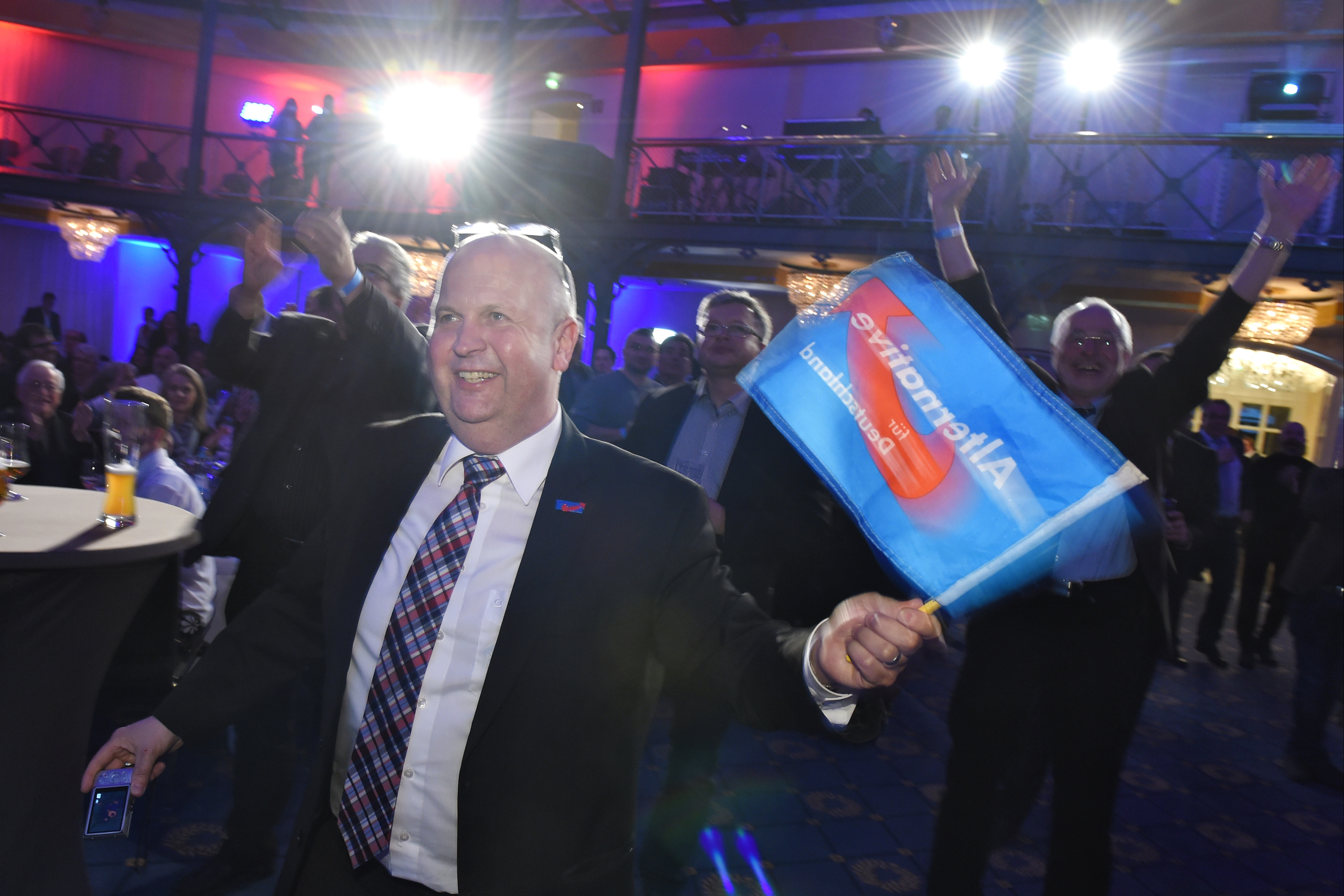Politics and migration
The “weight” of refugees’ on the outcomes of the regional elections of March 13. Breakthrough of Alternative für Deutschland, although the political parties heading the administration of regions and federal governments have obtained the majority of votes. For Mrs. Merkel these signs should not be underestimated. The comments of Hubert Wissing (Central Committee of German Catholics) and of the bishop of Magdeburg

The outcomes of the regional elections of Sunday March 13 in three German länder caused an upset and confirmed a set of trends along with major changes and potential impacts and prospects at European level. While it’s true that the parties governing the Country – Chancellor Angela Merkel’s CDU and her SPD allies – continue to preserve the majority needed to lead the regional government, AfD – Alternative für Deutschland – right-wing populist party, has obtained unexpected results, notably in Saxony-Anhalt, one of the Länder of ex-East Germany where over the past two years Pegida’s xenophobic and anti-Islamist movement has gained increasing consensus. In the region of Magdeburg, the CDU (Christian Democrats) remain the largest party with 29.8% of the vote, despite a -2.7%, while AFD obtained 24.2%; the third party is the left-wing Linke with 16.3% of the vote (-7.4% compared to 2011). In Rhineland Palatinate, the Social Democrats of SPD were confirmed the first party with 36.2% of the vote (+0.5%), CDU dropped to 31.8 (-3.4%) while AfD ranked third with 12.6%. In Baden-Württemberg the Greens emerged as the largest party with 30.3% (+ 6.1%), CDU followed with 27.0% of the vote, despite a 12%, decline. AfD obtained 15.1% of the votes; poor results for the Social Democrats that obtained 12.7%.
Comments in the press. “Germany stays cool”, titled “Die Zeit”: “AfD is strong, the party ranking has been upset, but the general outcome shows that the Germans are more mature than we had imagined”; wrote Bernd Ulrich referring to the high turnout at the polls (68% on average, +9% compared to 2011). “Der Spiegel” online edition titled “Political earthquake in Germany.” Berthold Kohler commented on “Frankfurter Allgemeine Zeitung”: “The Grosse Koalition is paying the dues of its migration policy that polarized Germany as it hadn’t happened for a long time. Will Merkel change course after the election results? It’s easier to push a boiled egg through a tea-strainer.”
Refugee inflow. Hubert Wissing, political representative of the Central Committee of German Catholics (ZdK) voiced his concerns to SIR. Indeed, he considers “scary for the German landscape and political culture” that in the three regions that went to the polls AfD registered a stunning rise and that “regional representatives of this party with open xenophobic positions will be sitting in Parliament.” While it was foreseeable that AfD would obtain elected representatives, it remains “an unusual result for a new political party.” Sunday’s elections were the first since the refugees crisis became a central item of debate in Germany: “AfD unquestionably took advantage of this” and managed “to mobilize voters who previously did not participate”, an element to be connected with the consistent growth in the percentage of voters. In fact
the problems and issues involving the three länder were not object of debate during the election campaign
which instead focused on migration-related themes, to the point that even AfD put aside their “anti-Europeanist positions” that had been a pillar of the party’s initial consensus, although it is to be expected that “AfD’s eurosceptic claims will be voiced again soon”, Wissing pointed out.
The Germans, Mrs. Merkel, and Europe. Moreover, an important aspect is that the majority of voters support “the policies of the government and of the chancellor in the area of migration.” What will happen next? Wissing said he hopes that government parties at federal and regional level (CDU-CSU, SPD, Greens, FDP) will manage to strengthen the central political powers “without exposing themselves to undue pressure, without surrendering to panic or taking decisions to regain AfD voters.” The experience of strong populist parties, known in other European countries, “was unprecedented in Germany until now.” Suggestions for Europe? For Wissing, the outcomes of the regional elections should prompt “the Governments of European countries to step up their joint efforts”; “I don’t think” that the outcomes of the vote “will weaken the position of the German government as regards a European solution” to urgent problems, also because “problems and urgencies are bound to increase.”
The Bishop’s hope. “The election results raise a set of questions”, remarked Msgr. Gerhard Feige, bishop of Magdeburg, capital of Saxony-Anhalt, on the diocesan website. “What does ‘democracy’ mean to the region’s population almost 27 years after the fall of the wall? Does it mean to punish for an overarching welfare system that fails to meet all the requests and desires of its citizens? Or is it a community marked by solidarity that thrives thanks to the constructive efforts of responsible citizens?” The bishop continued: “How will AfD develop this movement of unsatisfied populists” without a “serious programme?” Msgr. Feige’s appeal: problems cannot be solved with anger and hatred”, only “the heart and mind” can. His hope is in “a government coalition based on reasonableness, committed for the benefit of human dignity and the common good, facing the present challenges with intelligence and determination.”